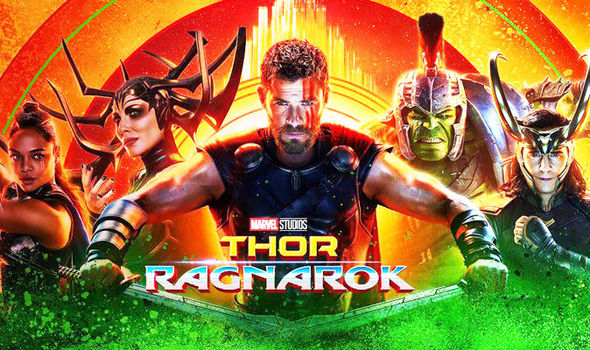How Feminist is “Thor: Ragnarok” Really?

December 4, 2017
Marvel’s newest installment is full of action, comedy, and adventure. They have perfected the art of the action movie, and their ratings are here to support this (“Iron Man” got a whopping 94% on Rotten Tomatoes). Even with powerful superheroes and a growing number of characters, Marvel still has a long way to go with female representation. “Thor: Ragnarok” can be seen as an improvement of sorts, but is lacking in some major areas. Read ahead to see where Marvel hit the mark head on, and where they didn’t even bother shooting an arrow, on feminism in “Thor: Ragnarok”.
The Wins
I am confident that most people who saw the movie would agree with the idea that Cate Blanchett delivered a stellar performance every second she was on the screen. A menacing all-powerful figure, it is almost overlooked that she serves as Marvel’s very first female villain out of the 17 movies since its beginning with “Iron Man.” I appreciate that the movie gives Hela a backstory so that the audience can understand her motivation and drive. She is given a justification of sorts, instead of portraying the stereotype of the overemotional woman. Hela does not interact with many characters, and her isolation creates another layer of fear in her opponents. On the other hand, Hela radiates with confidence and does not have time for nonsense. While her views may not align, it is inspiring in a way to see a woman with a mission and the determination to complete it.
Valkyrie was one of my favorite characters throughout the film. Even though she is considered a supporting character, her strong personality dominates when she is on the screen. Also surprisingly, she is another first for Marvel. Valkyrie is the first woman of color superhero in the Marvel Cinematic Universe. The character of Wanda Maximoff brought up this topic with her Roma background, and created upset when Elizabeth Olsen was cast instead. Tessa Thompson portrays a fierce, unforgiving warrior that earns the stamp of approval from the audience.
The Loss
A common marker to test the “level” of feminism in a given movie is the Bechdel Test. In order for movies to receive a passing score, they must contain three elements: two female characters having a conversation together, with the conversation being about something other than men. It can be shocking to see how many movies fail this seemingly easy standard. The Bechdel Test demonstrates how little women actually converse in film. As a human female, it seems strange to me that women scarcely talk to each other on the screen when we so often do in real life. I would like to see more conversations between women because it is not a rarity in life, so why should it be unusual for film?
Putting It Together
A failure of the Bechdel Test does not inherently make a “bad movie” or negate its other work with female representation, but the test does not contain criteria that is particularly hard to meet. I certainly do not want a movie to include a scene that certifies it to Bechdel standards but ignore and belittle women in every other scene. Despite not passing the test, “Thor: Ragnarok” did contain considerable female representation that shouldn’t be discounted. However, it shouldn’t have to be wishful thinking that two female characters in a movie will at some point have a conversation with each other. This movie is an excellent example of both how far women have come in film, but how much work is still to be done.
Works Cited
Hale-Stern, Kaila. “Should It Matter If Thor: Ragnarok Passes the Bechdel Test?” The Mary Sue, 31 Oct. 2017. Accessed 29 Nov. 2017.
“Marvel Cinematic Universe.” Rotten Tomatoes. Accessed 29 Nov. 2017.
“Thor: Ragnarok.” IMDb. Accessed 29 Nov. 2017.

